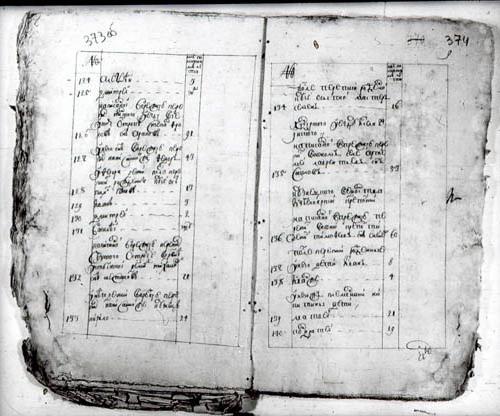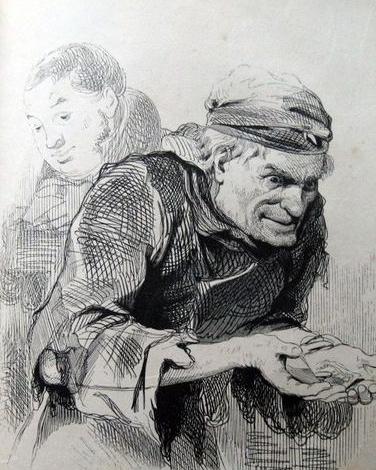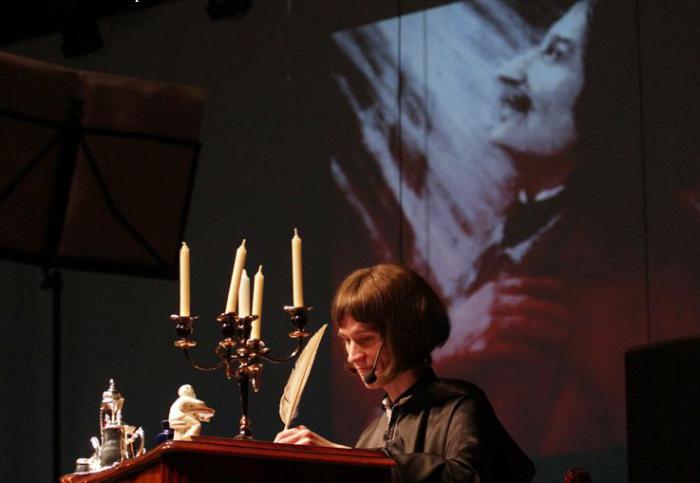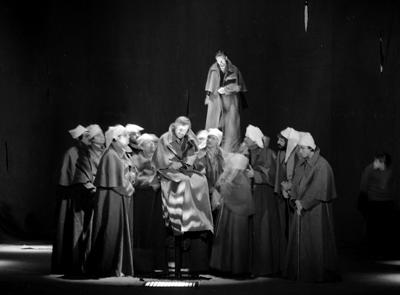The Revision fairy tale is today one of the most beautiful handwritten sources helping with genealogical research. And also this is a wonderful performance of the Moscow Taganka Theater.
What is a revision tale?
These are documents that were necessary in order to take into account the number of population in the Russian Empire, for which an audit was carried out, which had the goal of taxing the population by the head. Such documents were in use in the 18-19 centuries. The revision tale is a list of the population of each province, indicating the names, patronymics, last names, ages of all residents. A revision is the same census. In rural areas, revision tales were made by village and village wardens, and in cities representatives of the city council were engaged in this. During the existence of such documents, a total of 10 audits were conducted. Persons of both sexes, both men and women, were inscribed in audit tales. But only men were included in summary tables; women did not fit there. For example, revision tales of the Orenburg province allow you to find out what people lived in this area from 1834 to 1919. How many courtyards were, what classes lived, how many were women, men, children, old people. Revision tales of the Orenburg province are now stored in the state archives.

The record form of the collected information changed three times. The persons included in this document were called revision souls. Such documents also allow us to know now which settlements were in a particular area. For example, the revision tales of the Tambov province say that it included such villages as Olemenevo, Akselmeevo, Novosyolki, Inina Sloboda; villages Zhdanaya, Nikolaevka, Forest flowers and so on.
And here is N.V. Gogol?
Everyone knows that Nikolai Vasilievich has a work called Dead Souls. So, it is based not on the author’s imagination at all, but on a real historical fact that took place during the conduct of such revisions, as mentioned above. In the intervals between the census, clarifications took place. That is, we can say that additional audits were carried out. They were called to establish the presence of all souls inscribed in a fairy tale during the previous census. If for some reason a person was absent (died and so on), then these data were recorded.

According to the rules, clarifications of the revision tales were referred to the subsequent census. The missing soul was considered available until the next revision, even if the person died. Thus, the state increased the collection of per capita tax. But thanks to this, unclean people created excellent conditions for using this rule for their own purposes. It is the fact of such abuse that is reflected in the work of Dead Souls by Nikolai Vasilyevich Gogol.
"Audit Tale" of the Taganka Theater
“Revision's Tale” - a performance that was staged in the 70s of the 20th century by Yuri Lyubimov at the Taganka Theater, which he directed until the last days of his life and where he was the main director. The music for the performance was written by composer Alfred Schnittke, it is called the Gogol Suite. The “Audit Tale” of the Taganka Theater sets itself the goal of revealing to the audience the inner world of Nikolai Vasilyevich Gogol, and showing the drama of his soul. The main emphasis in the play is on plastic solutions. The play sounds the words from the work “Dead Souls”: “Russia! What do you want from me? .. And why has everything in you turned my eyes on me? ”Thus, the main motive for the fate of N.V. Gogol himself breaks into the play, asking the question that it means to be a writer in our country.

The production of the Audit Tale includes excerpts from various works by Nikolai Vasilyevich - Dead Souls, Overcoat, Notes of a Madman, Examiner, Portrait, Nose, Author's Confession, and even those Gogol texts that have never been uttered before from the stage. The play uses all the means of stage expressiveness, which are subordinated to one sense, the actors use a special style of play, due to which the production meets the main idea of V. E. Meyerhold - you need to play not only the play itself, but also “the whole author” as a whole. The Taganka Theater in its own way presented the viewer with the plot of Dead Souls. “Revision's Tale” is a production that requires viewers to respond to the acuteness of public meaning. In the performance, the characters are shown similar to monuments, reflecting the image of a dead stillness that was inherent in the surrounding N.V. Gogol's life. Now the production of the “Audit Tale” is withdrawn from the repertoire of the Taganka Theater.
Music for the play
“The clash of the sublime and the base in his writings, the use of the banal - all this, of course, influenced me to a great extent. A smash hit is a good mask for all the devilry, a way to get into one’s soul. ” So spoke of the work of N.V. Gogol composer Alfred Schnittke. It was no coincidence that the Audit Tale was so full of music. Nikolai Vasilievich was a very musical person. He attached great importance to this type of art. The writer knew musical notation. On the plots of his works, operas were created. The creation of A. Schnittke's “Revision Fairy Tale” is a production in which music is an integral part, it has an important role here, thanks to it the necessary space and time are created on the stage of the theater.
Storyline in music
Suite A. Schnittke, which sounds during the “Revizsky Tale”, consists of eight parts:
- "Overture".
- "The childhood of Chichikov."
- "Portrait".
- "The Overcoat."
- "Ferdinand VIII."
- "The officials."
- "Ball".
- "Will".
Characters of the play
The main protagonist of the performance "Revision fairy tale" was Nikolai Vasilyevich Gogol himself. The remaining heroes are characters of the writer's works:
- Pavel Ivanovich Chichikov.
- Aksenty Ivanovich Poprishchin.
- Andrey Petrovich Chertkov.
- Akaki Akakievich Bashmachkin.
- Spanish King Ferdinand VIII.
- An unnamed balletoman official whose body is at the department table and his soul is in the theater.
Performance summary
After the overture faded away, a small sprout appeared in front of the audience, which grew and turned into the head of a child. She is wearing a bonnet. Head was fed with porridge from a spoon, she ate with great appetite and gradually became huge. Then a gentleman appeared from her, average, or rather no. This is Chichikov. The background to what is happening on the stage sounds words about a boy who knew how to save and save money. The further action is a fragment from the story “Portrait”. Here is an artist who has lost his fame. Because of this, he falls into despair, loses the ability to create new worthy works of art, he has a desire to avenge the whole world and destroy all masterpieces. Now the performance is transferred to the story "The Overcoat." This wardrobe item here receives a different embodiment - this is not clothes, but a living woman - a friend, a wife whom the main character loves very much. The next part of the play is a fragment of the story “Officials". There are many of them, they are all the same, nameless, all have the same standing white collars and creaking feathers. A sort of endless anthill of human souls, some of which, perhaps, have long been dead, is replaced by a ball scene. The main character is again on the stage, he is surrounded by the characters he created, they laugh at him, make faces and make faces for him.

The author of the idea of the play
Yuri Petrovich Lyubimov - actor, director, artistic director of the Taganka Theater and creator of the performance “Audit Tale” - was born on September 30, 1917 in Yaroslavl. In 1922, he moved to Moscow with his parents, older brother and younger sister. In 1934, Y. Lyubimov entered the school-studio at the Moscow Art Theater-2. In 1936 he was admitted to the school at the E. Vakhtangov Theater. After graduation, in 1941, Y. Lyubimov was drafted into the army, where he served in the Song and Dance Ensemble, organized in order to maintain the fighting spirit of the soldiers.
After the war, Yuri Lyubimov went to work as an actor in the Theater named after E. Vakhtangov. In parallel with his work in the theater, he starred in films. In 1959, Yuri Petrovich tried himself as a director. His production was a resounding success, and he was invited to the place of leader in the Taganka Theater.
Role performers
Wonderful actors were engaged in the production of The Revision Tale. Gogol N.V. was talentedly played by the People's Artist of Russia Felix Antipov. The performance was played by actors known to the general public for their roles in the cinema: Ivan Bortnik, Veniamin Smekhov, Boris Khmelnitsky, as well as other excellent artists.